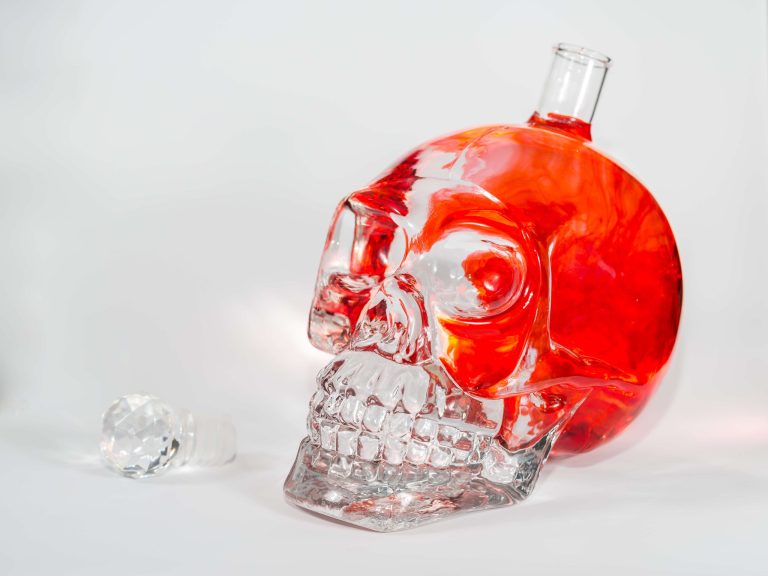Why Do We Get Addicted to Things?
Ekim 6, 2022Contents
For one, they are exposed to those substances, and exposure during early adolescence may especially influence substance use. Many different theories of addiction exist because they weight the role of contributing factors differently. Some current models of addiction emphasize the causative role of individual variations in biology or genes that make a substance or experience feel more or less pleasurable. There are no substances that universally or uniformly cause people to become addicted. And the vast majority of people exposed to most substances considered addictive do not in fact develop addiction to them. Rather, a very complex array of cultural factors, social factors, and situational factors mingle with psychological factors, biological factors, and even personal values to influence the possibility of addiction.

Drug use can have significant and damaging short-term and long-term effects. Taking some drugs can be particularly risky, especially if you take high doses or combine them with other drugs or alcohol. Once you’ve started using a drug, the development into addiction may be influenced by inherited traits, which may delay or speed up the disease progression.
Disrupted ‘motivational control’
Ketamine has been explored as a treatment for depression and other conditions. Now, researchers say it may be helpful for alcohol use disorder. In another experiment, the scientists let the rats drink highly desirable sugar water, and then injected them with a strong dose of alcohol to make them feel sick. As with humans, alcohol appeared to make the rats sleepy, nauseated, and uncoordinated. The normal rats disliked this sensation and learned to avoid the sugary mixture, while the rats with lesioned lateral habenulae kept drinking it.
But what addiction may come down to for everyone is the emotional and physical appeal of a substance at a particular moment in a person’s life. But they may also become alcoholics because of the environment in which they have been raised or because of their family or community’s attitude towards heavy drinking. Mental health disorders, the effects of combining alcohol with other drugs stress, and trauma can also contribute to alcohol and drug abuse. Your susceptibility to alcoholism is typically determined by a combination of genetic, mental health and environmental factors. There are several factors that play a role in determining who becomes addicted to alcohol, including genetics and environmental influences.
This is particularly acute in adolescents and young adults who drink, as developing brains can be dangerously affected by consuming alcohol. This happens for a variety of reasons, which includes societal pressures, work-related burdens, or financial stress. Additionally, many working professionals have the means with which to support a drug dependence. They are often doctors, lawyers or other professional types with high incomes to pay for a drug habit.
- This misinformation may especially impact young or undereducated people who don’t have the life experience or ability to understand the dangers of drug use.
- Patient care and engagement are always top notch, and I know that I can always trust that the patient and their families will be in the best position to recover.
- Some people who’ve been using opioids over a long period of time may need physician-prescribed temporary or long-term drug substitution during treatment.
- Other drugs, such as anabolic steroids, human growth hormones or stimulants, are used to improve physical performance in athletes or those who are extremely physically active.
- Peers play an enormous role in addiction susceptibility, especially among teens and young adults; most people use drugs for the first time as teenagers.
- It’s common for a person to relapse, but relapse doesn’t mean that treatment doesn’t work.
Talk to your children about the risks of drug use and misuse. Spending money to support drug use takes away money from other needs, could lead to debt, and can lead to illegal or unethical behaviors. Drug use can negatively affect academic performance and motivation to excel in school. People who are addicted to a drug are more likely to get an infectious disease, such as HIV, either through unsafe sex or by sharing needles with others.
Unmet Basic Needs and Their Effects on Relationships
GAT-3 is a “transporter” protein that helps to clear away GABA from around neurons. Studies have also revealed that rats that become addicted to alcohol seem to have altered GABA signaling. Researchers in Sweden and the United States suggest that this might be the case after studying alcohol addiction in rats. If you or a loved one are struggling with alcohol addiction, WebMD Connect to Care Advisors are standing by to help. If you have a parent or a close relative with alcohol addiction, your risk goes up. Research shows that genes are responsible for about half of the risk for AUD, according to the National Institute on Alcohol Abuse and Alcoholism.
In other words, drinking too much, too often, can interact with your brain’s circuitry to create dependence. However, since genetics are at play, it’s crucial to be cognizant of your alcohol use if you have a family history of alcoholism. If a person is genetically predisposed to experience the positive effects of alcohol more strongly, they’re more likely to develop a problem with alcohol. This, in turn, can lead to more heavy drinking or binge drinking. “The younger someone is, the more vulnerable they are to addiction,” Boyle said. In fact, a federal study from 2014 found that the majority of 18- to 30-year-olds admitted to treatment programs had started using drugs at age 17 or younger.
If a person continues to use alcohol, then the brain will crave it in order to restore pleasurable feelings. Brain wiring partly determines who is vulnerable to alcoholism. Mental illness also leaves people vulnerable to alcohol abuse. The genes that people are born with account for about half of a person’s risk for addiction. Gender, ethnicity, and the presence of other mental disorders may also influence risk for drug use and addiction.

If you have a mental health disorder such as depression, attention-deficit/hyperactivity disorder or post-traumatic stress disorder, you’re more likely to become addicted to drugs. Using drugs can become a way of coping with painful feelings, such as anxiety, depression and loneliness, and can make these problems even worse. Drug addiction, also called substance use disorder, is a disease that affects a person’s brain and behavior and leads to an inability to control the use of a legal or illegal drug or medicine. Substances such as alcohol, marijuana and nicotine also are considered drugs. When you’re addicted, you may continue using the drug despite the harm it causes. There are many factors that influence addiction beyond genes and biology.
Physical and Psychological Addiction to Alcohol
Find out how you can help and be a positive influence in their journey to be alcohol-free. For example, because of differences in liver enzymes, men have a higher alcohol tolerance than women, putting males at greater risk for alcoholism. A newly explored part of the brain controls our ability to avoid negative alcohol experiences. Drug addiction is a chronic disease characterized by drug seeking and use that is compulsive, or difficult to control, despite harmful consequences. It’s common for a person to relapse, but relapse doesn’t mean that treatment doesn’t work. As with other chronic health conditions, treatment should be ongoing and should be adjusted based on how the patient responds.

The transition back to life outside of rehab is fraught with the potential for relapse. Aftercare resources such as 12-step groups, sober living homes and support for family and friends promote a life rich with rewarding relationships and meaning. If you start drinking relationship between bone mineral density and alcohol intake before you’re 15 years old, you may be four times likelier to develop alcohol dependence later in life, the NIAAA says. “Over time, however, with repeated drinking, the person feels poorly when alcohol is not in the brain, and feels ‘normal’ when alcohol is present.
Download your free Rehab Clinics Group alcohol & drug addiction treatment centre information brochure. Different drugs tap into the dopamine reward system in different ways. Marijuana and heroin have a chemical structure similar to another neurotransmitter and can trick some brain cells into activating neurons that use dopamine.
To confirm that the GAT-3 gene was at fault, the scientists ran another experiment in which they silenced GAT-3 in the rats that had switched over to sugared water in preference to alcohol. When the researchers looked inside the rats’ brains, they discovered what might be disrupting the “motivational control.” First, they looked for differences in gene expression in different parts of the brain. The rats continued to dose themselves with alcohol even when a “high-value” option, such as sugared water, was made available to them. In their study, they found that a similar proportion of the rats that were exposed to alcohol persisted with alcohol-seeking and became addicted.
Teenagers are also faced with the intense pressure of needing to fit in and look cool, which often means abusing drugs and alcohol. Additionally, teens typically go through a phase of rebellion against their parents or attachment figures. Substance abuse is a common way to express this rebellious stage.
What environmental factors influence addiction?
Drug use delivers instant gratification in terms of physical, psychological, and emotional sensations. It’s also often a social act, which further enhances feelings of gratification. Additionally, younger people may experience social pressure to use drugs from television, social media, and physical signs and other symptoms other celebrity influences. It’s possible that people see drug use being glorified in the media, and so they feel pressured to participate as well. If you start using the drug again, talk to your health care provider, your mental health provider or someone else who can help you right away.
Changes in the brain
The sooner you seek help, the greater your chances for a long-term recovery. Talk with your health care provider or see a mental health provider, such as a doctor who specializes in addiction medicine or addiction psychiatry, or a licensed alcohol and drug counselor. The vast majority of children whose parents abuse alcohol or drugs do not grow up to do the same. However, they are at some increased risk for doing so, and there are a number of reasons why.
Studies have shown that people who start drinking before the age of 14 are 47 percent more likely to become alcoholics. To counteract the brain-slowing effects of alcohol, for instance, the brain increases the activity of excitatory neurotransmitters, which stimulate nerve activity and heighten arousal. As these changes occur, people require increasingly larger amounts of alcohol to become intoxicated.
What are Some of the Reasons People Become Alcoholics?
Children of parents who misuse drugs are at greater risk of drug addiction. If you’re not ready to approach a health care provider or mental health professional, help lines or hotlines may be a good place to learn about treatment. You can find these lines listed on the internet or in the phone book. Club drugs are commonly used at clubs, concerts and parties.
The body eventually craves alcohol to restore pleasurable feelings and avoid negative feelings. People who already suffer from high stress or psychological problems such as low self esteem and depression are at higher risk for developing alcoholism. Some people are more susceptible to these extreme neurobiological changes than others, and therefore more susceptible to addiction. Not everyone who tries a cigarette or gets morphine after a surgery becomes addicted to drugs. Similarly, not everyone who gambles becomes addicted to gambling. Many factors influence the development of addictions, Boyle said, from genetics, to poor social support networks, to the experience of trauma or other co-occurring mental illnesses.
Take our short alcohol quiz to learn where you fall on the drinking spectrum and if you might benefit from quitting or cutting back on alcohol. From day one, Ria Health has offered support for the Sinclair Method—a medication-based approach to moderate drinking or abstinence with a 78 percent success rate. We walk alongside our clients on their journey; understanding their past and working together to build a new future – transforming lives and sustaining recovery for everyone we support.
